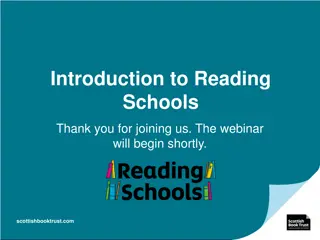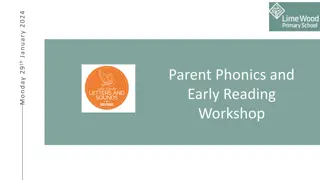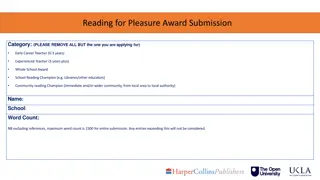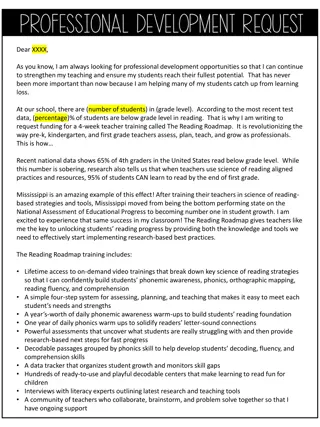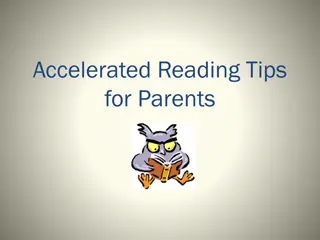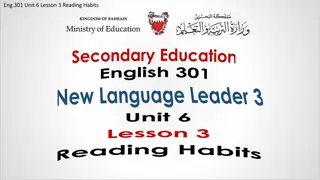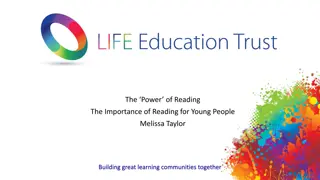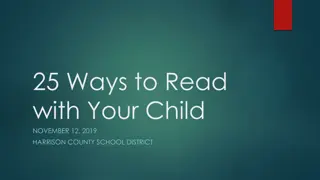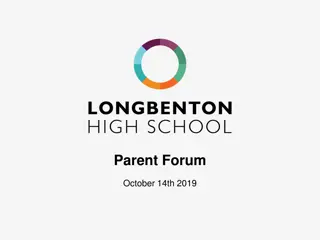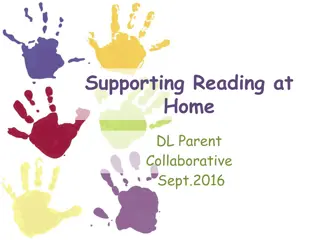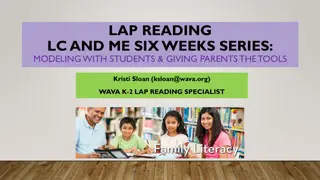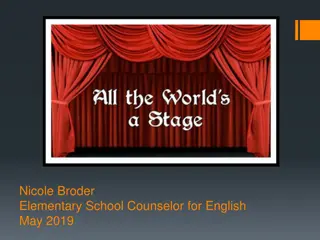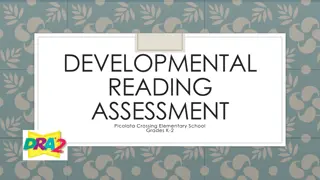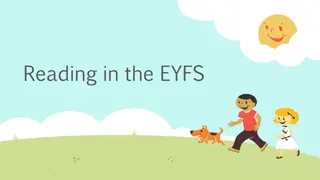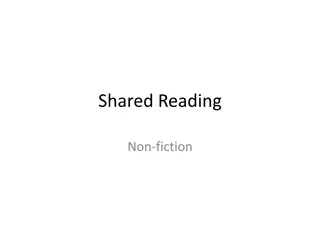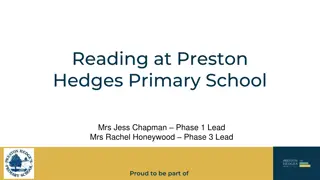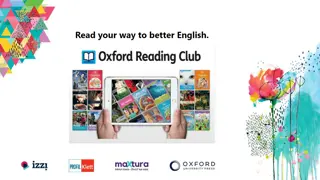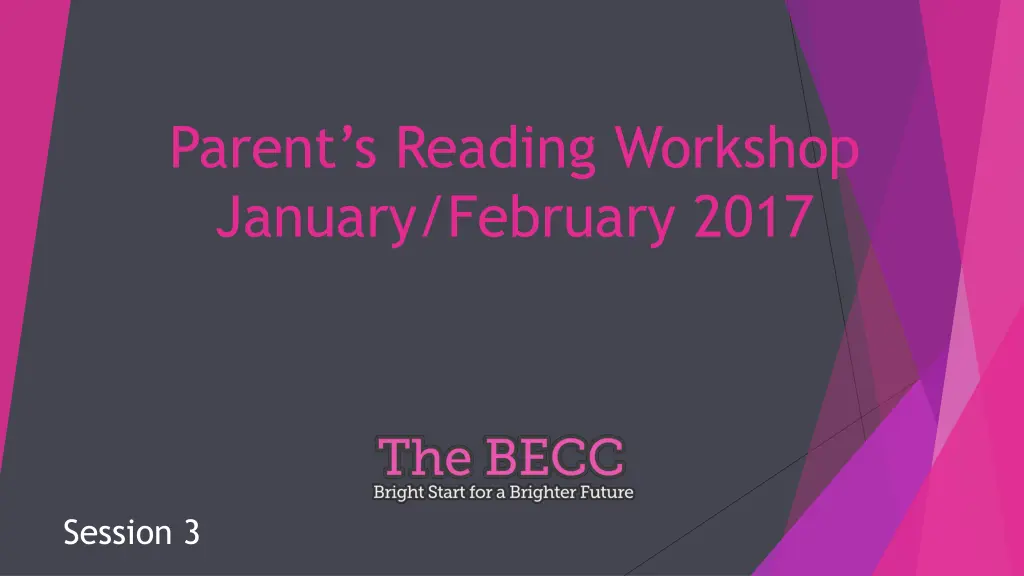
Effective Strategies for Developing Reading Skills in Children
Learn about the importance of reading skills for academic success and discover strategies such as phonics, word recognition, and understanding to help children become proficient readers. Avoid common pitfalls like "schwa" and explore resources for correct pronunciation and practicing letter sounds.
Download Presentation

Please find below an Image/Link to download the presentation.
The content on the website is provided AS IS for your information and personal use only. It may not be sold, licensed, or shared on other websites without obtaining consent from the author. If you encounter any issues during the download, it is possible that the publisher has removed the file from their server.
You are allowed to download the files provided on this website for personal or commercial use, subject to the condition that they are used lawfully. All files are the property of their respective owners.
The content on the website is provided AS IS for your information and personal use only. It may not be sold, licensed, or shared on other websites without obtaining consent from the author.
E N D
Presentation Transcript
Parents Reading Workshop January/February 2017 Session 3
Reading Success in reading is fundamental to success in school. Reading is all about acquiring meaning; for enjoyment, information and understanding. It is not a performance. It is not a test.
Reading requires two skills Phonics and Word Phonics and Word Recognition Recognition The ability to recognise words presented in and out of context. The ability to blend letter sounds (phonemes) together to read words. Understanding Understanding The ability to understand the meaning of the words and sentences in a text. The ability to understand the ideas, information and themes in a text. If a child understands what they hear, they will understand the same information when they read.
What are phonics? How many letters? 26 44 How many sounds (phonemes)? How many spellings of the sounds? 144
Saying the sounds Turn to your partner and say the sounds of the alphabet.
Do Not Schwa!!!! If children schwa they will hear an extra sound when they are trying to blend the word and the word will not make sense. If children hear an extra sound, they may add this sound when spelling and therefore get the spelling wrong.
Correct pronunciation of letter sounds https://www.youtube.com/watch?v=bSYdCzsoqXA
Stretchy Sounds r r r r r r r s s s s s s s v v v v v v v th th th th ng ng ng ng f f f f f f f f n n n n n m m m m l l l l l l l l l sh sh sh sh z z z z z z
Bouncy Sounds b b b b b w w w w w t t t t t y y y y y p p p p p d d d d d g g g g g a a a a a e e e e e i i i i i o o o o o u u u u u h h h h h j j j j j k k k k k x x x x x c c c c c q q q q q
Blending and Segmenting sh ar p sharp Blending for reading and Segmenting for spelling
What to do if your child is stuck Use phonics first. What sound does the word begin with? Can you say the sounds in the word? Blend them together. Read to the end of the sentence. What would make sense? What is the text about what might fit here? Does it sound right? Look at the picture. Does it help?
Independent Strategies by Jill Marie Warner When I get stuck on a word in a book, There are lots of things I can do. I can do them all, please, by myself; I don't need help from you. I can look at the picture to get a hint. Or think what the story's about. I can "get my mouth ready" to say the first letter. A kind of "sounding out". I can chop up the words into smaller parts, Like on or ing or ly, Or find smaller words in compound words Like raincoat and bumblebee. I can think of a word that makes sense in that place, Guess or say "blank" and read on Until the sentence has reached its end, Then go back and try these on: "Does it make sense?" "Can we say it that way?" "Does it look right to me?" Chances are the right word will pop out like the sun In my own mind, can't you see? If I've thought of and tried out most of these things And I still do not know what to do, Then I may turn around and ask For some help to get me through
How to use these strategies at home John let his pet frog go. It ******across the grass. What is the first sound? It h***** across the grass. What would make sense? It hopping across the grass. Does that sound right? It hopped across the grass.
Questions Closed Questions Do you like this book? Do you like this character? It s a good story isn t it? Do you like reading? Are you good at reading? Do you like this kind of story? Change these questions so that the answers cannot be yes or no. Open Questions What do you like about this book? What do you think of this character? Why do you think this is a good story? What s great about reading? Why are you a good reader? What is it about these stories that you like so much?
Talking about books It is not a test! Do you like this book; why? Who is your favourite character? Tell me about a character in the book. Which words tell you what the character is like? How would you feel? What do you think will happen next? What would you do? What have you learned about in your book? What can you tell me about ?
Hearing your child read Choose a quiet time and give your child your full attention; Give support if required using the strategies explained earlier; Explain the meaning of new words; Talk about the text using open questions

